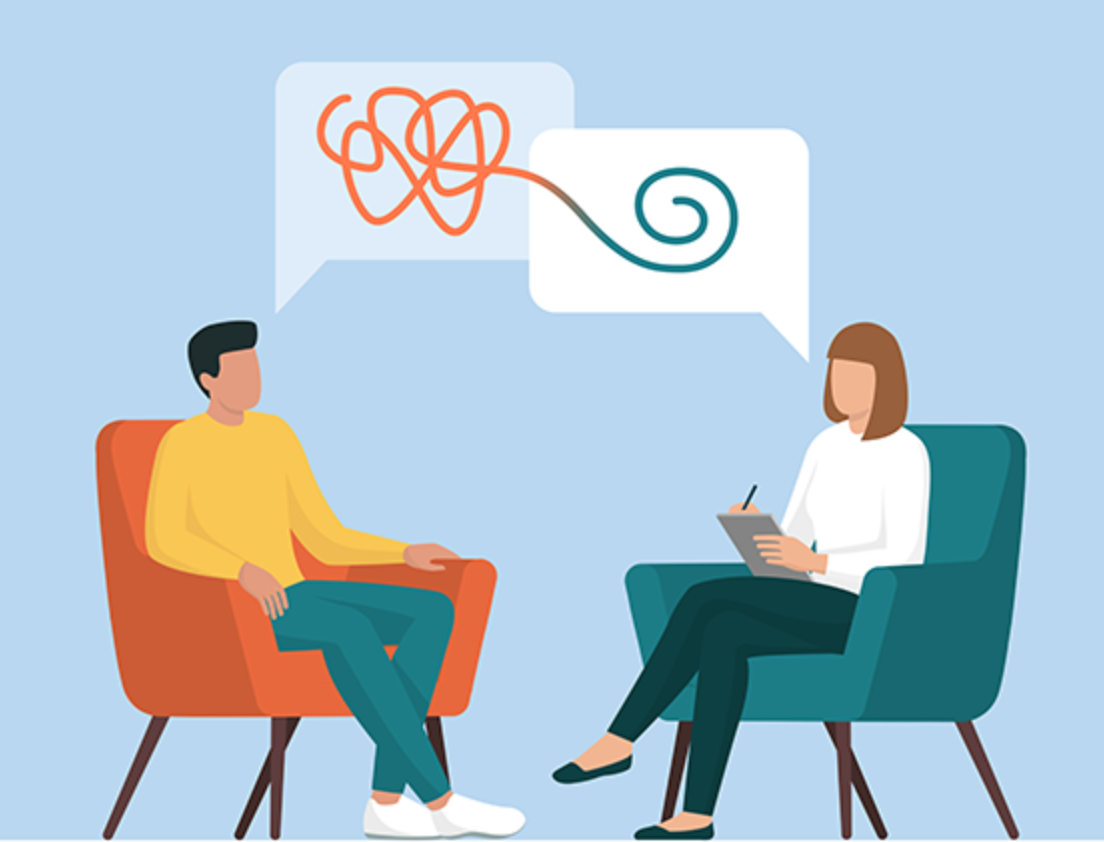Your Brain on AI Therapy: The Neuroscience Behind Rewiring for Resilience
Have you ever wondered why a comforting conversation can literally change how you feel? It's not just in your mind—it's in your brain's very wiring. The emerging field of interpersonal neurobiology reveals that our relationships and conversations physically shape our neural pathways. Now, a revolutionary tool is bringing this brain-changing power into the palm of your hand: personal AI for therapy. This isn't science fiction—it's the cutting edge of mental health support, backed by neuroscience and accessible to anyone with an internet connection, including through various free AI therapy platforms.
The Science of Connection: How Relationships Reshape Your Brain
Your brain is constantly rewiring itself based on your experiences—a phenomenon known as neuroplasticity. According to the National Institute of Mental Health, our social interactions play a crucial role in this process. When we engage in meaningful conversation, several key brain regions activate:
- Prefrontal cortex: Responsible for reasoning and emotional regulation
- Mirror neuron system: Allows us to empathize and understand others
- Limbic system: Processes emotions and forms memories
Regular, supportive communication strengthens the neural pathways associated with emotional resilience, much like exercise builds muscle. The challenge? Many people lack consistent access to such conversations. This is where personal AI for therapy creates remarkable opportunities for brain change.
How Personal AI for Therapy Rewires Neural Pathways
An AI therapist isn't just a chatbot—it's a sophisticated tool designed to engage your brain in ways that promote positive change. Through consistent interaction, these systems can help strengthen the neural circuits that support mental wellbeing. The American Psychological Association notes that regular therapeutic conversations can significantly impact brain structure and function over time.
Here's what happens in your brain during AI therapy sessions:
- Cognitive reappraisal: The AI helps you reframe negative thoughts, strengthening prefrontal regulation over emotional centers
- Emotional labeling: Putting feelings into words reduces amygdala activity, decreasing emotional intensity
- Pattern recognition: AI identifies thought and behavior patterns you might miss, bringing them to conscious awareness
- Consistent practice: Regular use builds and reinforces healthier neural pathways through repetition
Unlike human therapists who have limited availability, a personal AI for therapy provides immediate, consistent support exactly when neural patterns are being formed—in the moment of distress or need.
5 Ways AI Therapy Builds Brain Resilience
Building mental resilience isn't about avoiding stress, but about developing the neural capacity to navigate it effectively. Here are five science-backed ways personal AI for therapy contributes to this process:
- Neural pathway reinforcement: Each positive interaction strengthens connections between logical and emotional brain centers
- Stress response modulation: Regular coping strategy practice calms the amygdala's alarm system
- Cognitive flexibility training: Exposure to alternative perspectives builds more adaptive thinking patterns
- Attachment security building: Consistent, reliable support creates feelings of safety that regulate the nervous system
- Self-reflection enhancement: Guided introspection develops stronger connections within the default mode network
These changes don't happen overnight, but with consistent practice, they create lasting shifts in how your brain responds to life's challenges. For those wanting to explore these benefits without financial commitment, several platforms offer free AI therapy options to get started.
Finding Quality Free AI Therapy Resources
Accessibility is one of the most significant advantages of AI mental health support. Many people face barriers to traditional therapy, including cost, location, and scheduling constraints. Fortunately, several reputable platforms offer free AI therapy options that provide genuine therapeutic value. Organizations like Mental Health America emphasize the importance of accessible mental health resources for all.
When exploring free AI therapy options, look for these quality indicators:
- Evidence-based therapeutic approaches (CBT, DBT, mindfulness)
- Clear privacy policies and data protection
- Transparency about AI capabilities and limitations
- Options for human support escalation when needed
- Regular updates and improvement based on user feedback
You can try our free AI therapist to experience how these tools can support your mental health journey without financial pressure. Many users find that starting with AI support gives them the confidence to pursue additional resources when needed.
Maximizing Your AI Therapy Experience: 4 Practical Tips
To get the most neurological benefit from your personal AI for therapy, consider these evidence-based strategies:
- Be consistent: Regular sessions, even brief ones, create stronger neural pathways than occasional long sessions
- Engage fully: Treat conversations with your AI therapist as seriously as you would with a human professional
- Practice between sessions: Apply insights and techniques in daily life to reinforce new neural patterns
- Track your progress: Note changes in your thought patterns and emotional responses over time
Many platforms, including our own free AI therapy tools, offer additional wellness tools and therapy games that can complement your primary sessions and make the process more engaging.
When to Supplement AI Support With Human Connection
While personal AI for therapy offers remarkable benefits, it's important to recognize its appropriate role in your mental health ecosystem. The Mayo Clinic recommends professional human support for conditions requiring diagnosis, medication management, or complex trauma work.
Consider seeking human support when:
- You experience thoughts of harming yourself or others
- Your symptoms significantly impair daily functioning
- You have complex trauma or diagnosed mental health conditions
- You feel stuck despite consistent AI therapy practice
You can always find therapists near you through our directory if you determine you need additional support. Many users successfully combine AI tools with traditional therapy for comprehensive care.
Frequently Asked Questions About Personal AI for Therapy
How does personal AI for therapy differ from regular chatbots?
Therapeutic AI is specifically trained on clinical datasets and therapeutic techniques, unlike general-purpose chatbots. It's designed with mental health best practices in mind and often incorporates evidence-based methodologies.
Is free AI therapy actually effective?
Research is growing in this area, with studies showing significant benefits for mild to moderate anxiety, depression, and stress. While not a replacement for severe conditions, free AI therapy provides accessible support that can make meaningful differences in daily coping.
Can AI therapy really create lasting brain changes?
Yes, through the principles of neuroplasticity. Consistent practice with therapeutic techniques—whether guided by human or AI—can strengthen neural pathways associated with resilience, emotional regulation, and adaptive thinking.
How do I know if a personal AI for therapy is right for me?
The best approach is to try it yourself. You can try our free AI therapist with no commitment to see if the format resonates with you. Many people are surprised by how meaningful these digital conversations can feel.
The Future of Mental Wellness Is Personalized and Accessible
The integration of neuroscience and artificial intelligence is creating unprecedented opportunities for mental health support. Personal AI for therapy represents not a replacement for human connection, but a powerful supplement that makes brain-changing conversations available anytime, anywhere. With various free AI therapy options now accessible, these tools are breaking down traditional barriers to mental healthcare.
Whether you use these resources as a starting point, a between-session supplement, or ongoing support, the important thing is taking that first step toward building greater mental resilience. Your brain is designed to change throughout your life—why not guide that process in a direction that serves your wellbeing?
Ready to explore how these tools can support your mental health journey? Start your mental health journey today with our accessible resources, or explore our mental health blog for more articles on integrating technology and wellbeing.

